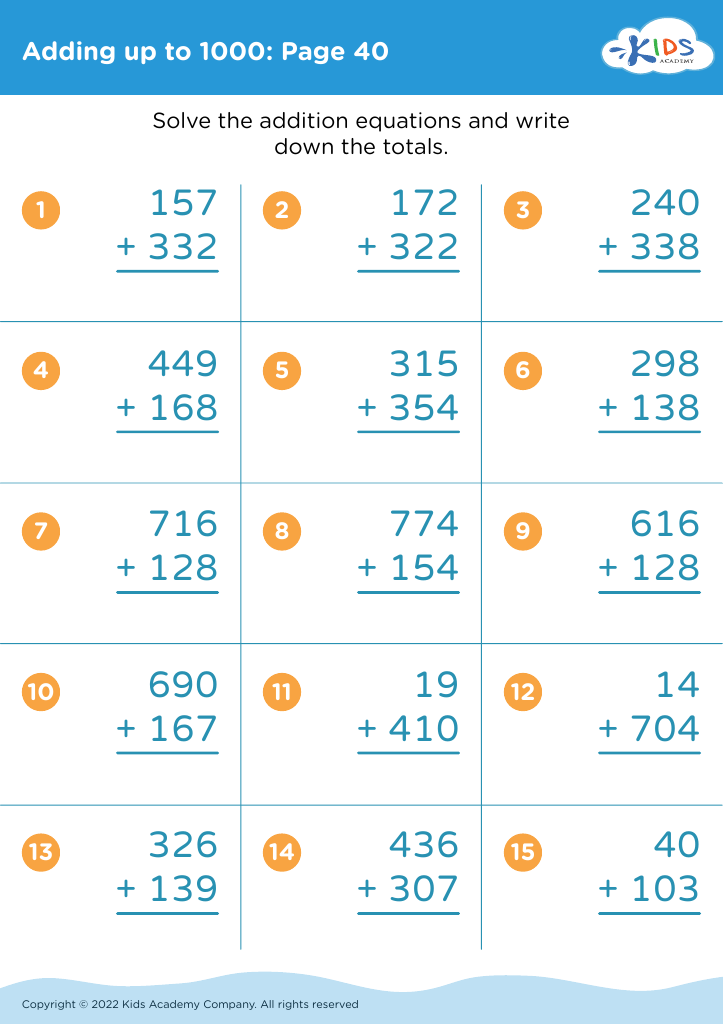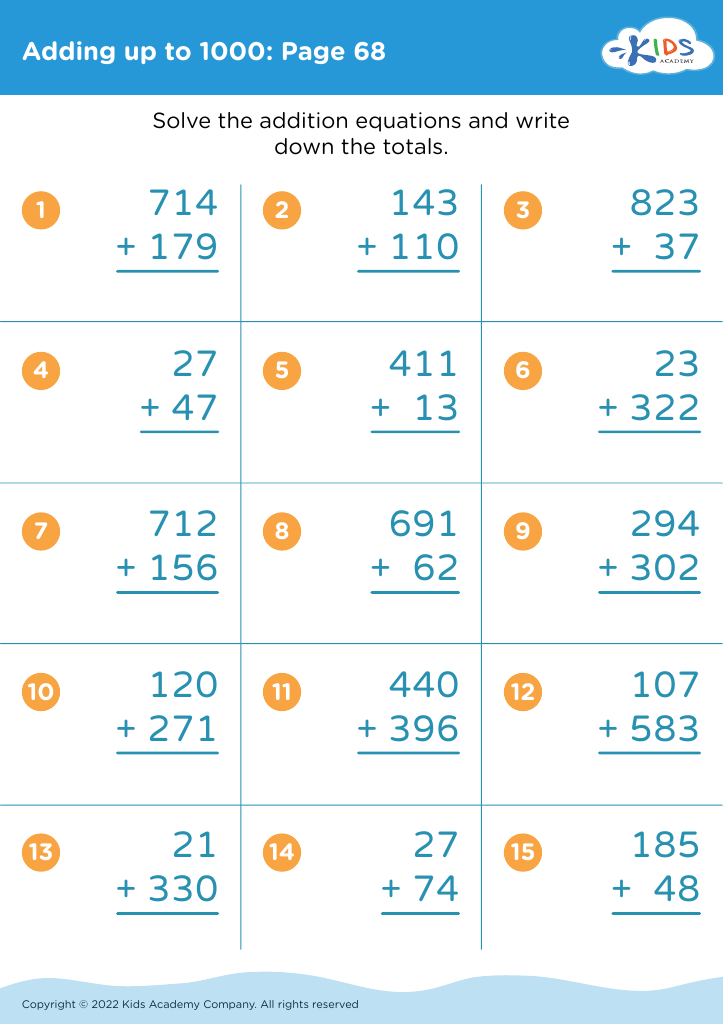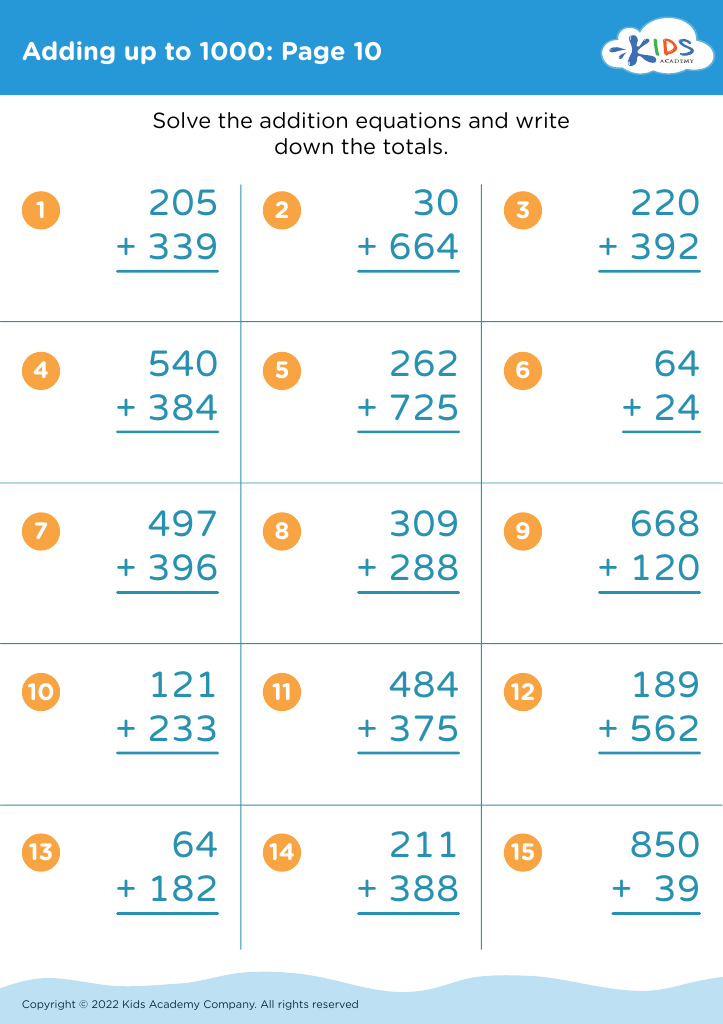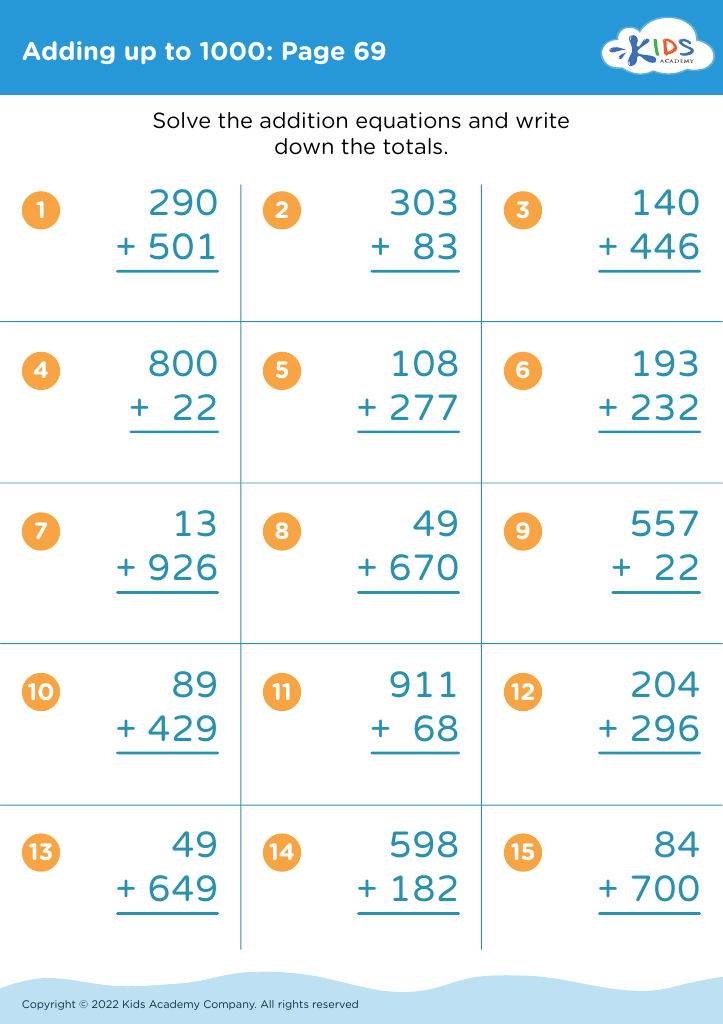Comparing Fractions Adding up to 1000 Misc Worksheets for Ages 4-7
5 filtered results
-
From - To
Discover a range of diverse worksheets designed to help children aged 4-7 master comparing fractions with sums up to 1000. These engaging activities blend fun with fundamental math skills, ensuring young learners gain confidence in handling fractions. Whether they are just beginning to explore fractions or looking to sharpen their skills, these printables provide easy-to-follow exercises that enhance both understanding and proficiency. Parents and educators can use these resources to support classroom learning or supplement homeschooling curriculum. Through colorful illustrations and age-appropriate tasks, children will develop crucial fraction comparison skills in an enjoyable and interactive way. Explore now!
It's crucial for parents and teachers to care about early math skills, such as comparing fractions and adding up numbers, even for children as young as 4-7 years old. At this age, kids are just beginning to understand fundamental math concepts, which are the building blocks for more complex arithmetic they'll encounter later.
Firstly, studying fractions helps children develop a sense of proportions and relationships between different quantities. This foundational knowledge is applicable in everyday settings, such as sharing toys evenly or dividing snacks among friends, and it strengthens problem-solving skills.
Comparing numbers up to 1000 builds upon basic counting skills, reinforcing numerical recognition, an understanding of place value, and the concepts of greater than and less than. These activities also improve memory and cognitive abilities by encouraging kids to recognize patterns and logical sequences.
Engaging children in these kinds of math exercises boosts confidence in their overall academic abilities. Using healthy blends of fun with educational content makes learning enjoyable and instills a lifelong passion for discovering and understanding new concepts.
Therefore, introducing these skills at an early age not only satisfies curriculum requirements but also establishes a robust framework for future math learning, promotes critical thinking, and ensures well-rounded intellectual development.


















